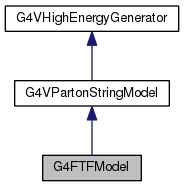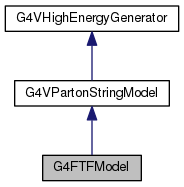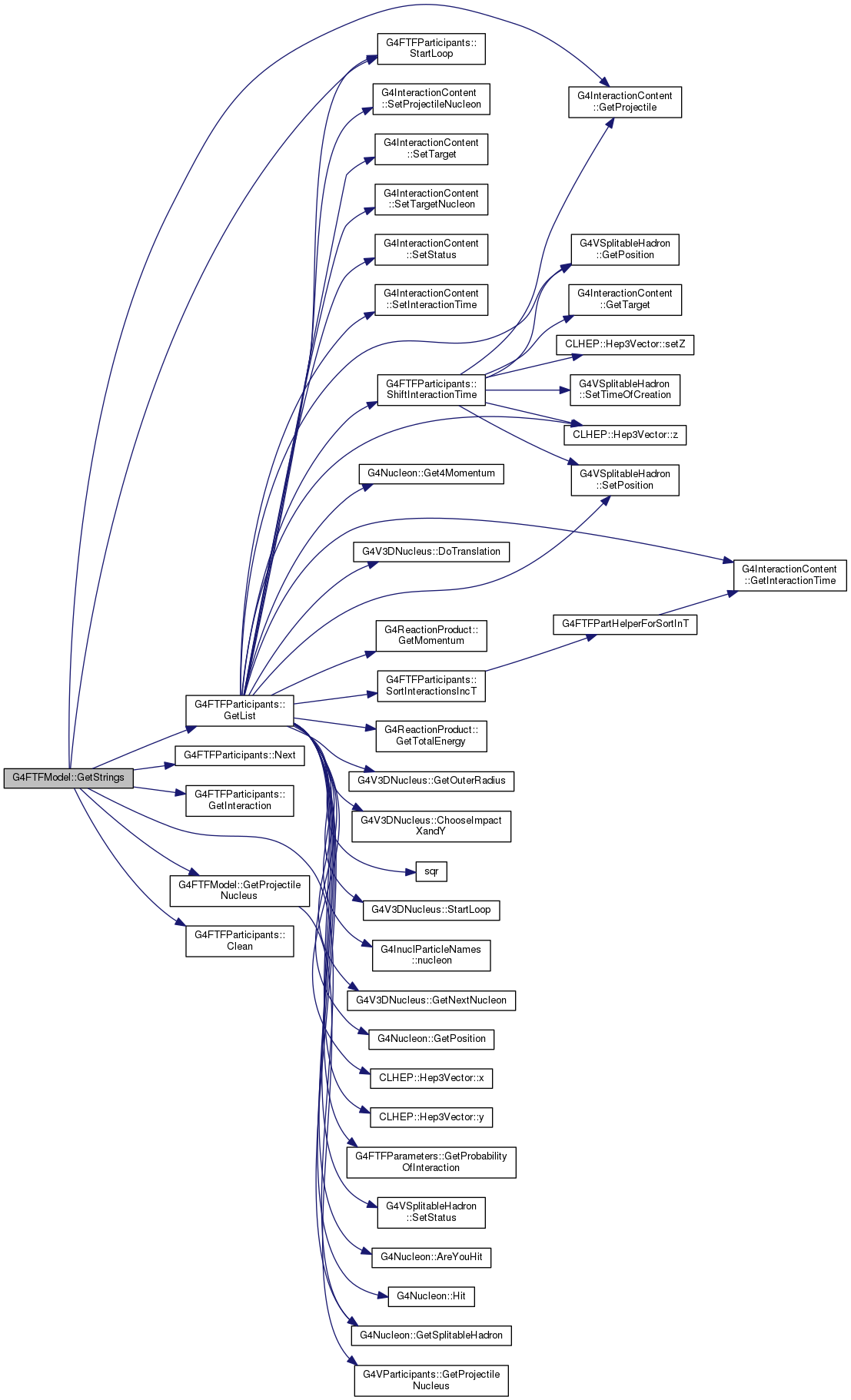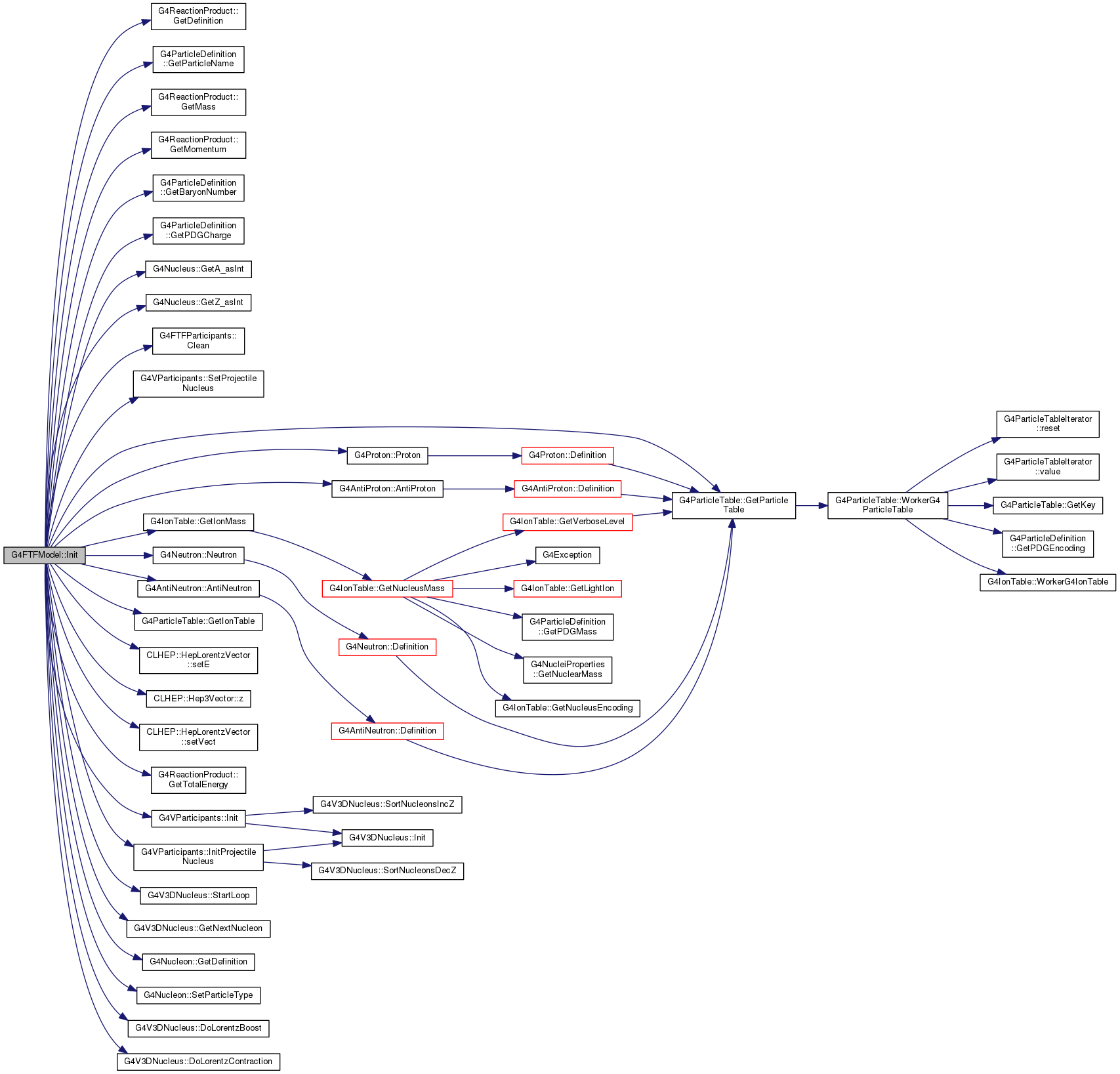152 theProjectile = aProjectile;
158 <<
"FTF init Proj Mass " << theProjectile.
GetMass()
162 <<
"FTF init Target A Z " << aNucleus.
GetA_asInt()
166 theParticipants.
Clean();
171 ProjectileResidualMassNumber = 0;
172 ProjectileResidualCharge = 0;
173 ProjectileResidualExcitationEnergy = 0.0;
174 ProjectileResidual4Momentum = tmp;
176 TargetResidualMassNumber = aNucleus.
GetA_asInt();
178 TargetResidualExcitationEnergy = 0.0;
179 TargetResidual4Momentum = tmp;
181 ->
GetIonMass( TargetResidualCharge, TargetResidualMassNumber );
183 TargetResidual4Momentum.
setE( TargetResidualMass );
190 ProjectileResidualExcitationEnergy = 0.0;
194 if ( PlabPerParticle < LowEnergyLimit ) {
195 HighEnergyInter =
false;
197 HighEnergyInter =
true;
208 if ( PlabPerParticle < LowEnergyLimit ) {
209 HighEnergyInter =
false;
211 HighEnergyInter =
true;
231 if ( PlabPerParticle < LowEnergyLimit ) {
232 HighEnergyInter =
false;
234 HighEnergyInter =
true;
241 ProjectileResidualExcitationEnergy = 0.0;
251 if ( theParameters != 0 )
delete theParameters;
255 if ( theAdditionalString.size() != 0 ) {
256 std::for_each( theAdditionalString.begin(), theAdditionalString.end(),
259 theAdditionalString.clear();
void SetParticleType(G4Proton *aProton)
virtual G4bool StartLoop()=0
virtual void DoLorentzContraction(const G4LorentzVector &theBoost)=0
virtual void SetProjectileNucleus(G4V3DNucleus *aNucleus)
const G4String & GetParticleName() const
virtual const G4ParticleDefinition * GetDefinition() const
const G4ParticleDefinition * GetDefinition() const
G4IonTable * GetIonTable() const
G4GLOB_DLL std::ostream G4cout
virtual void Init(G4int theZ, G4int theA)
static G4AntiProton * AntiProton()
G4double GetIonMass(G4int Z, G4int A, G4int L=0, G4int lvl=0) const
G4V3DNucleus * theProjectileNucleus
static G4Proton * Proton()
static G4Neutron * Neutron()
G4double GetTotalEnergy() const
virtual void InitProjectileNucleus(G4int theZ, G4int theA)
virtual void DoLorentzBoost(const G4LorentzVector &theBoost)=0
static G4ParticleTable * GetParticleTable()
G4ThreeVector GetMomentum() const
virtual G4Nucleon * GetNextNucleon()=0
void setVect(const Hep3Vector &)
G4double GetPDGCharge() const
static G4AntiNeutron * AntiNeutron()
G4int GetBaryonNumber() const


 Protected Member Functions inherited from G4VPartonStringModel
Protected Member Functions inherited from G4VPartonStringModel






